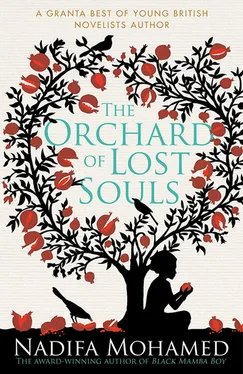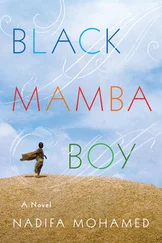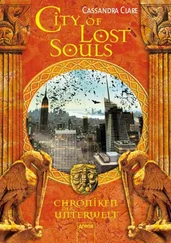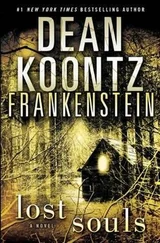Nadifa Mohamed
The Orchard of Lost Souls
To Hooyo, Aabbo and Abtiyo Kildi
If the first woman God ever made
was strong enough to turn the world
upside down, all alone
together women ought to be able to turn it
right side up again.
Ain’t I a Woman?
— Sojourner Truth
Five a.m. Too early to eat. There is hardly any light, perhaps just enough to distinguish a dark thread from white, but Kawsar washes her face in the basin inside her bathroom, runs a caday over her teeth and slips into the day’s costume without wasting any paraffin. She feels her way into her underskirt and red shift dress, squeezes thick amber bangles over each elbow and smoothes a heavy silver necklace over her sagging chest, then arranges the sheets neatly over her single bed. She finishes the glass of water on her bedside table and shakes out her leather sandals in case spiders or scorpions have sought shelter in them overnight, before finally locking the door leading from the bedroom to the kitchen. She knows that the day will be long and that she should force a little breakfast inside her, but her stomach is a closed fist. With the sandals on her feet and a long shawl over her shoulders, Kawsar opens the exterior door to find her neighbours, Maryam English, Fadumo, Zahra and Dahabo, mingling in her courtyard.
‘What took you so long, saamaleyl ?’ Dahabo swishes the flask in her hand at Kawsar.
‘I was oiling my knees,’ Kawsar replies with a smile, linking arms with her childhood friend.
The men and women of the Guddi, the neighbourhood watch of the regime, have spent the night shouting orders through megaphones of what to wear and where to meet. The women have all dressed in the same traditional outfit and Zahra has torn down branches from a miri-miri tree, which she hands out to the women to wave at the stadium — another instruction from the megaphones. The narrow, sandy street ahead is filled with women in similar dress, and behind them even more follow languidly. They pass Umar Farey’s eighteen-room hotel, each window blind and shuttered as if the building itself is sleeping; no Hindi songs or Kung-fu sounds come from Zahra’s video hall; and Raage’s corner shop is just a corrugated tin shack rather than its usual Aladdin’s cave.
‘See how early they drag us out of bed. Nothing is too much for them, the swines.’ Maryam English tightens the strap holding her baby to her back; she has had to leave the two older children locked in at home.
Kawsar rubs the sleeping baby’s back and wishes it was Hodan’s instead, her child returned as an infant with the chance of a second life ahead of her.
‘Look at us, we are the same woman over the ages,’ laughs Fadumo, her cane weaving in front of her.
It is true: they are identical except that Maryam English is in her late twenties, Zahra in her forties, Dahabo and Kawsar circling their late-fifties and poor Fadumo a hunched-over seventy-something. They look like illustrations in a school textbook, everybody equal in the same garments and just a few lines on the face or a stooped back delineating age. That is the way the government seems to want them — simple, smiling cartoons with no demands or needs of their own. Now those cartoons have come to life — not tilling, weaving or working in a factory like on the shilling notes, but trudging to a celebration that they are forced to attend.
They walk through the backstreets, the sky above slowly getting paler and paler, until they reach the sports stadium. The Guddi activists in armbands are asking what neighbourhood they belong to and counting them as they enter the gate.
‘There’s Oodweyne watching over us,’ yells Dahabo, pointing up.
‘Shush!’ whispers Maryam. ‘They’ll hear you.’
Kawsar turns back to the Guddi to check, but they are preoccupied by the throngs of people pushing through the gate. The mothers of the revolution have been called from their kitchens, from their chores, to show foreign dignitaries how loved the regime is, how grateful they are for the milk and peace it has brought them. It needs women to make it seem human.
Beyond Dahabo’s pointed finger is a mammoth painting of the dictator, hanging over the stadium like a new sun, rays emerging from around his head. The painters have tried to soften that merciless, hangdog face but have succeeded only in throwing it off balance — the chin too long, the nose too bulbous, the eyes asymmetrical. The only accurate part is the short, clipped moustache modelled on that German leader.
Workmen hurriedly hang other paintings, slightly smaller, of his acolytes, the interchangeable ministers of defence, finance and internal security, their positions so insecure that by the end of the day new paintings might be commissioned. Fadumo leads the way to the stands and the rest follow, knowing that they will not be comfortable anywhere; there will be no shade, no rest, no sustenance for the next seven hours. Eighty-seven has been a year of drought and the morning sky settles yet again into an unrelenting, cloudless blue.
Filsan hasn’t slept for the last three days. She has had charge of three Guddi units and they have created problem after problem for her; she could not have imagined a more cantankerous, ineffectual, gossipy group in her nightmares. In the end she sent one of the units back to Saba’ad refugee camp to train a group of children in traditional dance, but she doubts that they can even do that right. One unit is now stationed at the stadium’s north gate while the other rounds up stragglers and clears rough-sleepers and debris from the route of the parade. The VIPs are not expected for another hour but the stadium still looks bare, disorganised; most of the participants are yet to arrive and when they do, God knows if they will be in shape.
This is Filsan’s first October Twenty-first in Hargeisa and it seems ramshackle compared to what she knew in Mogadishu. It is now eighteen years exactly since the President’s rise to power after a military coup, and the celebrations in Mogadishu show the system at its best, everyone working together to create something beautiful. The Military-Governor of the North Western region, General Haaruun, will be the President’s avatar in Hargeisa and has arranged the military parade with a flyover to start and finish the day. The civilian part of the ceremony has been patched together by the Guddi, who are using it as an excuse to exhibit their amateur singing, dancing and oratory.
Filsan strums the teeth of the plastic comb in her trouser pocket and chews her lip; she looks at the empty dais where General Haaruun will sit with the dignitaries and imagines herself placed in the centre, not as his companion but as his successor, waving down to her subjects. Her boots are polished beautifully, her khaki uniform clean and sharply pressed, and the black beret on her head brushed and angled just so. She has lined her eyes discreetly with kohl and pressed colour onto her lips with her fingers. She looks herself but a little better, a touch more feminine; she has resisted playing these games until now, but if the other female soldiers get noticed this way, maybe she can too.
She shoves the comb deep into her pocket and straightens her tunic over her rear. As she rushes past the south gate, two civilian policemen salute her, looking to each other with smiles in their eyes. Filsan’s face pinches with annoyance, knowing that they will stare at her behind as soon as they can. Beyond the south gate the military convoys are queuing up: tanks, jeeps, armoured vehicles, trucks carrying every type of rocket and missile, soldiers in metal green helmets waiting patiently inside and beside the vehicles. Filsan feels proud looking at them. She is part of the third largest army in Africa, a force that would have conquered all of Ethiopia, not just the Ogaden, in 1978 if the Russians and Cubans hadn’t switched sides.
Читать дальше











